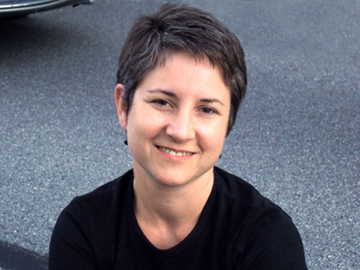 by Emily Ralph, associate director of communication
by Emily Ralph, associate director of communication
Credentialed leaders from Franconia and Eastern District Conferences gathered on May 5, 2014 at Towamencin Mennonite Church (Kulpsville, Pa.) to dialogue with Loren Swartzendruber, president of Eastern Mennonite University (EMU). The evening conversation focused on the University’s recent six-month listening process regarding employment policies for persons in same-sex relationships.
Swartzendruber began the meeting by sharing about experiences throughout his career that challenged him to offer pastoral care for persons struggling with questions of sexual identity. As a recent seminary graduate beginning his first pastoral assignment at Salford congregation (Harleysville, Pa.) in 1978, Swartzendruber felt ill-prepared; he doesn’t remember learning about same-sex relationships in seminary. “I had no idea how to respond,” he recalled. These questions continued to follow him throughout his career in Mennonite education and as president of both Hesston College and Eastern Mennonite University.
These experiences led Swartzendruber to root the University’s consideration of employment policy changes in contexts of real people and real situations. “Your feedback is more valuable to me if I know you’ve really walked through the pain with families and individuals,” he reflected.
Swartzendruber explained that questions and perspectives from students have driven him to lead the listening process and consider change. “For me, it’s all about the young people… I really care about the next generation,” he shared. He is becoming increasingly aware that students’ response to the conversation is as much about the process as the result. “I met with the pastoral staff [at EMU] and they told me, ‘The students on campus are watching how we do this … and they’re trying to decide, do I want to be a part of the church?’”
Swartzendruber explained the realities on campus that led to the listening process:
- Currently, students and employees are asked to sign a behavioral covenant in which they commit to “refrain from sexual relationships outside of marriage.” Swarzendruber acknowledged the difficulty of enforcing this commitment and the challenge of understanding it in the context of changing definitions of legal marriage.
- EMU has asked new hires to express their agreement with the Confession of Faith in a Mennonite Perspective for many years, but “we’ve allowed variants from the Confession of Faith at EMU for a long time,” he said. Some of these variants have included beliefs about divorce and remarriage, infant baptism, and the traditional Mennonite peace position. Employees have been asked to respect official Mennonite perspectives even where variation exists.
- Eastern Mennonite University has a number of gay and lesbian students on campus. “They want to be a part of the church,” Swartzendruber said. “By definition most of them wouldn’t come to EMU if they didn’t want to be part of the church. They are your children,” he said, “sometimes literally your children, but children of your congregations.”
Swartzendruber then answered questions from conference pastors about the listening process, the relationship of the university to the denomination, and steps moving forward. The president’s cabinet led the listening process by facilitating about 20 listening circles, with up to 20 students or faculty and staff per session, he explained. They then brought what they heard back to the rest of the cabinet and will consider those responses, along with what they heard in a survey and other communication from alumni and church leaders. They have begun processing that feedback and will write a recommendation to send to the EMU executive board and then the board of trustees in June. The University’s board will make the decision to accept, reject, amend, or table the proposal.
Lorie Hershey, pastor of West Philadelphia congregation, was impressed by the thoroughness and intentionality expressed in the process. “I think we need these listening circle places,” she told Swartzendruber. “That’s where the Spirit can move, in relationships—not changing people’s minds, but relationships…. That’s transformative.” Her hope was that the broader church could find more places for similar conversations, she said, conversations that “give one another space to respect each other, to not pull each other into camps.”
 Swartzendruber acknowledged that these kinds of conversations surface anxieties in the church. “Practicing non-anxious presence doesn’t mean you don’t have anxiety,” he said, “it means you don’t lead out of that anxiety.” Learning to manage and respond to fear in healthy ways is a missional impulse, he said. “Who wants to join people who are afraid all the time? … What kind of evangelistic strategy is that?”
Swartzendruber acknowledged that these kinds of conversations surface anxieties in the church. “Practicing non-anxious presence doesn’t mean you don’t have anxiety,” he said, “it means you don’t lead out of that anxiety.” Learning to manage and respond to fear in healthy ways is a missional impulse, he said. “Who wants to join people who are afraid all the time? … What kind of evangelistic strategy is that?”
As the meeting ended, the pastors gathered around Swartzendruber and other EMU staff to pray for the continued process, acknowledging the ongoing struggle and pain all church leaders face during this difficult time.
After the meeting, “I heard and saw many persons engaged in some deeper discussions and I think that leads to better understanding of one another,” observed Mike Clemmer, pastor of Towamencin congregation. “I continue to be hopeful as we struggle together…. Overall, I was reminded that we need to keep praying for one another – no matter what!”
Learn more about EMU’s listening process on their website.

 As I discerned my call to
As I discerned my call to